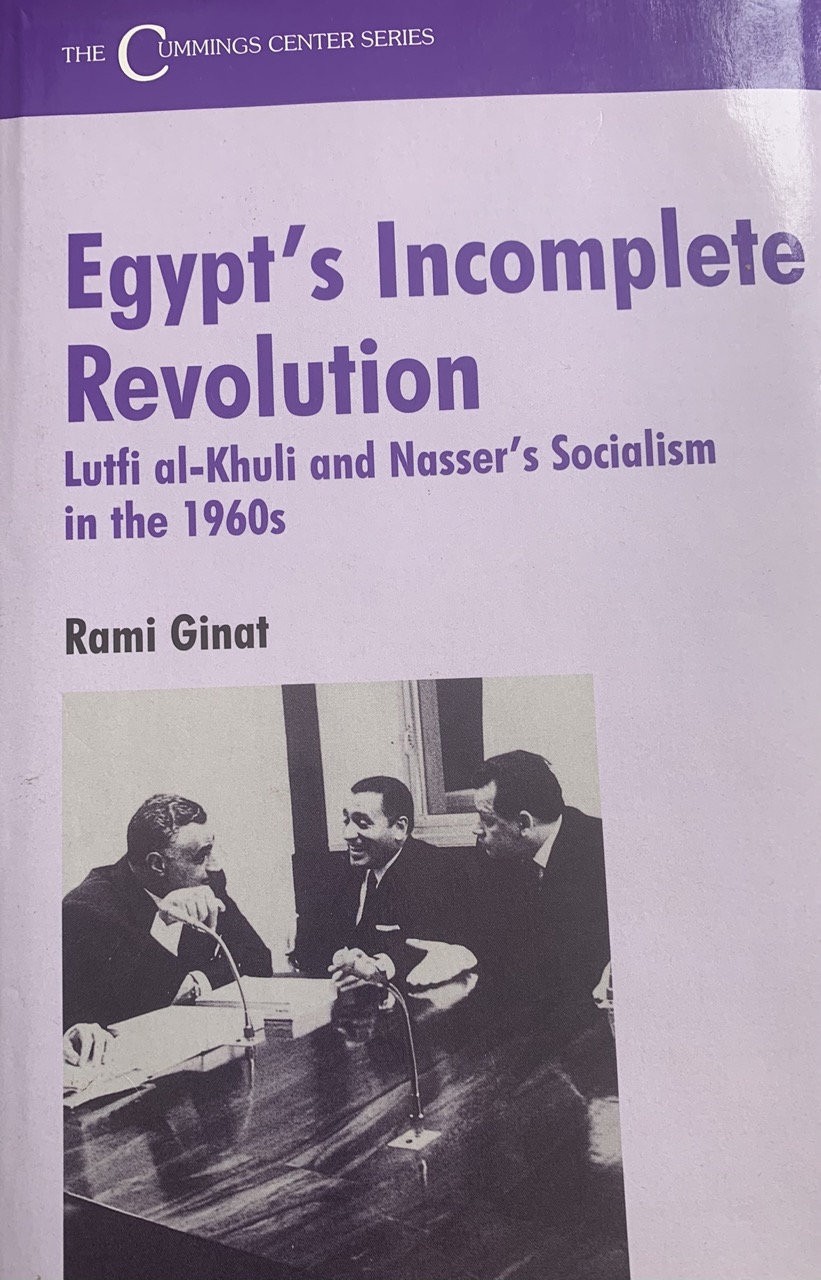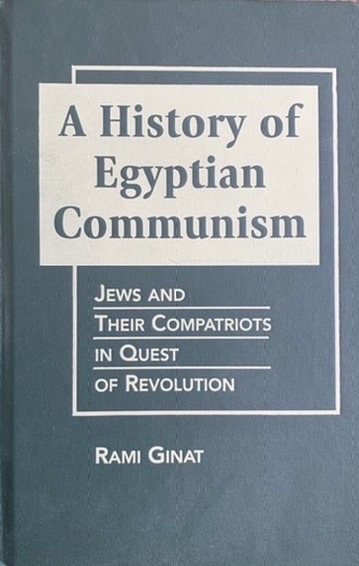Socialism, Communism, Nationalism, Islamism in the Arab Middle East
I have published many studies related to these issues. In Egypt's Incomplete Revolution (London: Routledge, 1997, 2013), I examined the ideological sources of Nasser’s Arab Socialism. I explored the question of whether Nasser’s socialism was a product of truly original Arab-Egyptian thought, or whether it was an imported ideology. My work demonstrated that the new ideology was imported from abroad by intellectuals and politicians, but was renovated to meet local Egyptian conditions. The study, on the one hand, explored the general theoretical dimensions of ideology’s affiliations to statecraft and applied these insights to identify the concrete role, which Arab socialism played in the Nasserite state. This involved a comprehensive discussion of the tenets of Arab socialism; including a meta-argument about the status Arab socialism assigned itself regarding the conduct of affairs of state. The study, on the other hand, examined Arab socialism through the narrowest of lenses, specifically the case of the seminal intellectual Lutfi al-Khuli, an approach which enabled me to elaborate on ideological crystallization at its most tangible level. My choice fell upon al-Khuli because he was a leading member of the foremost intellectual circle associated with the Nasserist regime, yet his contribution was neglected in research and remained relatively obscure. These macro- and micro- approaches aimed, from opposite directions, at illuminating the process of Arab socialism’s intellectual formation, its political institutionalization and its social dissemination.
A History of Egyptian Communism (Boulder CO.: Lynne Rienner Publishers, 2011) offers an entirely new reading of the evolution of communism in Egypt, including the central role of Egyptian Jews in both its development and its impact on Egypt and the wider Middle East.
Drawing deeply on previously inaccessible original sources, it traces a story of intrigue and ideology from the late 1910s to the early 1950s. Many of his findings directly challenge the prevailing scholarship on the subject. This seminal work is also a major contribution to ongoing debates in Egypt today about the nature of Egyptian nationalism and the role of the country’s communist movements and leadership.
Reviews of Egypt's Incomplete Revolution

“Ginat's well-documented study provides a first-rate summary of the thoughts of Lutfi-al-Khuli...The chief merits of this book are its analysis of Nasserite rethoric, to which al-Khuli was a significant contributor, and its use of recently declassified American and British diplomatic correspondence....” Choice
“...Rami Ginat in his book focuses on the role of Lutfi al-Khuli, a leading Marxist activist, in post-revolutionary Egypt...through his interviews with al-Khuli and analysis of his writings, [Ginat] is able to provide a fascinating perspective of socialist development in Egypt under Nasser...[The book is] essential purchase for any library collection on modern Egyptian history. [It] contributes much to the understanding of the significance of the 1952 revolution and why Arab Socialism was arguably an impossible dream..."Rodney Wilson (Durham University), British Journal of Middle Eastern Studies (2003)
A useful guide to politics and ideology in Nasser's day... Dr Ginat has provided a serious, professional thesis with authoritative foundations. Jerusalem Post
Rami Ginat's study concentrates on Arab socialism in Nasser's Egypt and takes a more varied approach. On the one hand, it explores the general theoretical dimensions of ideology's connection to statecraft. On the other hand, the study examines the specific case of the seminal intellectual, Lutfi al-Khuli, a leading member of the foremost intellectual circle associated with the Nasserist regime...It provides a well-focused picture of the development of socialism in Egypt and the role al-Khuli played therein. Magda Kandil (University of Wisconsin-Milwaukee), The International Journal of Middle East Studies (1998)
Reviews of A History of Egyptian Communism

“A work that will quickly become the go-to source on the history of communism in pre-Nasserist Egypt… It is first and foremost a detailed account of the origins and impact of communist movements from the 1920s through the end of the ‘liberal era’. Ginat’s authority as the primary academic chronicler of the Egyptian left is rooted in exhaustive, innovative research undertaken over many years and in many places.” Joel Gordon (University of Arkansas and editor of IJMES) , Bustan (2014)
“This is a meticulously researched study. Rami Ginat, who has become one of the foremost experts on Egyptian communism…has written the definitive history of the early Egyptian communist movement. His book [also] provides a wealth of information and insight into the political history of Egypt and the wider region, not least the history of Middle Eastern Jewry before the founding of the Israeli state.” Johan Franzén (University of East Anglia), American Historical Review (2012)
“Meticulously researched and wide ranging.... In rich detail, Rami Ginat recounts the saga-like history of Egypt's communist movements and considers the important but controversial role that Jews played in them.”Professor Heather Sharkey, University of Pennsylvania (2011)
"Pathbreaking…. This meticulously researched study provides a comprehensive and systematic look at the critical role played by Jews and other Egyptians in the formation and development of the Communist movement in Egypt.” Professor Israel Gershoni, Tel Aviv University (2011)
Rami Ginat…took upon himself the task of writing a comprehensive history of Egyptian Communism with special reference to the substantial role played by Egyptian Jews in its emergence and development, and its impact on Egypt and the wider Middle East. The result is an impressive and well-documented book that covers the history of organized Communism in Egypt from its beginnings in the 1920s until the early 1950s when Jewish influence declined…This book is especially recommended to anyone who is interested in the history of modern Egypt, the story of the Jews in Egypt, and the role they played in the making of modern Egypt. The author has made a most valuable contribution to our knowledge of all those subjects.”David Sultan (Former Israeli Ambassador to Egypt), Israel Journal of Foreign Affairs (2012)
The book’s most important arguments are: 1) there was continuity between the “first communist movement” of 1910-24 and the revival of the movement in the 1930s; 2) Jews played a central role as transmitters of Marxist ideology in nearly every Egyptian communist formation; 3) Jews were a minority in the leadership of important communist organizations with the largest number of worker-adherents, the Egyptian Movement for National Liberation (EMNL) founded and led by Curiel, and Workers’ Vanguard, in which Darwish and two other Jews were central figures; 4) all the communist groups supported the 1947 UN plan for the partition of Palestine because they followed the line of the Soviet Union, not because they were Zionists…[Ginat should] be commended for his extensive research. Joel Beinin (Stanford University), MESA Review of Middle Eastern Studies (2012)

